|
| |  | | Two Sessions 2023 | | | |
|
|
|
|
| 25 February 2023 | Welcome to our 1,377 newly joined SCMP Global Impact readers who signed up in the past week. | Dear Global Impact Readers,
War, what is it good for? Absolutely nothing, I think most would agree.
Friday marked the first anniversary of the war in Ukraine, 12 months since the start of what Russian President Vladimir Putin called a “special military operation”. There has been nothing special about it.
In this issue, Daniel Kwan, our China news editor, looks at the diplomatic, military, monetary and economic impact of the conflict in Europe, with a particular focus on how China has responded to a war that has led to tens of thousands of deaths on both sides and created Europe’s largest refugee wave since World War II.
Andrew Mullen
Deputy Editor, Political Economy
No end in sight for Ukraine-Russia war
Around a month after Russian President Vladimir Putin launched the invasion of Ukraine, US counterpart Joe Biden declared that the Russian leader was a dangerous man who should not be allowed to remain in power.
“For God’s sake, this man cannot remain in power,” Biden said in an address outside the Royal Castle in Warsaw, Poland, at the end of March.
Some 11 months later, the Russian president is still in power and as defiant as ever, and the Ukraine-Russia war has no end in sight.
Casualty counts vary – depending on their sources. The US estimated that around 200,000 Russian soldiers have been killed or wounded. Ukraine, on the other hand, has suffered around half as many losses. Meanwhile, civilian casualties have reached almost 20,000, according to the United Nations.
The Ukraine-Russia war is not just the bloodiest war of the 21st century, but it is a highly divisive conflict. On the one side is Ukraine, backed by the United States and most Western allies and partners. Russia, isolated under Western sanctions, has the likes of China, Iran and North Korea in its corner.
For China, the “no limits” declaration of partnership between Putin and President Xi Jinping in February 2022 has raised a lot of eyebrows. The worries doubled last weekend when US Secretary of State Antony Blinken dropped a bombshell by claiming Beijing was considering arming Russia with lethal weapons.
The alarming allegation, which was promptly denied by Beijing, immediately raised red flags in capitals across the globe and Europe in particular, where China’s top diplomat, Wang Yi, was touring on a fence-mending mission.
In addition, it further complicates already fragile US-China relations, which were recently roiled by the spy balloon controversy.
While Wang was in Moscow - widely believed to be preparation for a state visit by Xi to Russia later this year - he touted China-Russia ties as “rock solid”. Analysts, however, said the relationship is anchored more on national interest than ideologies.
Just emerging from the coronavirus pandemic, economic recovery and reopening to the outside world are priorities for Beijing. However, China also does not want to see Russia fall, and certainly not under terms and conditions dictated by Washington and its allies.
Beijing may not be a direct player in the Ukraine-Russia war, but the year-long conflict has offered valuable references to its military top brass, who are studying it closely for any lessons about modern warfare and possible tips in the event of war over Taiwan.
From military tactics to information warfare, Chinese commanders are leaving no stone unturned in their analyses and simulations.
On the eve of the first anniversary of the Ukraine-Russia war, both Putin and Biden stood firm and condemned each other for the war.
In the meantime, shelling will continue in Ukraine, and peace will have to wait. No matter what the outcome is, the world is edging towards a new cold war and becoming more divided and dangerous. |
|
|
|
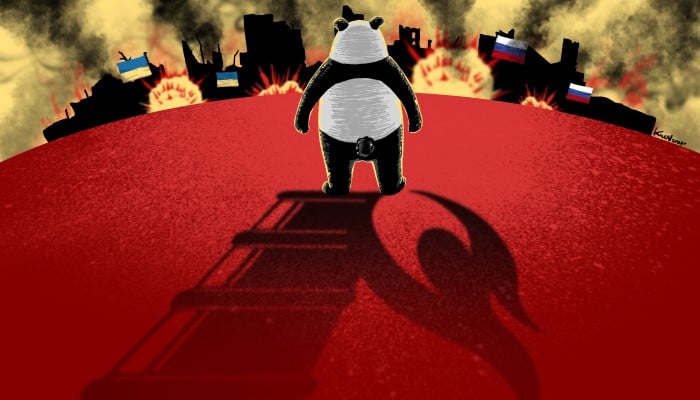 |
| How China’s energy outlook has been reshaped by the Ukraine war | | • | In the past year, the flow of Russian energy products to China has increased, with importers taking advantage of discounted prices | | | • | But growing Russian oil and gas imports pose a risk, adding to perceptions of a strong Moscow-Beijing alliance amid a more politicised global energy market |
| As the Ukraine war enters its second year with no end in sight, there is one foregone conclusion that affects almost every country in the world: the conflict has profoundly reshaped the global energy market. The Russian invasion and subsequent Western sanctions have heaped enormous strain on oil and gas markets, put climate goals on the back burner, and forced nations to re-evaluate long-standing supply relationships. Read more |
|
|
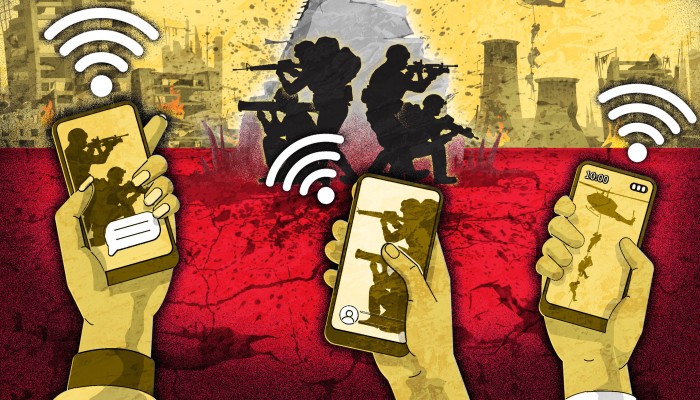 |
| On the front lines of Ukraine war: tech and social media | | • | Ukraine’s ability to hold off Russian forces with inexpensive tech tools appears to favour a similar strategy for Taiwan as it faces threats from the mainland | | | • | ‘It’s really hard for any military to hide and to use deception for very long. There are so many eyes and ears’ |
| Evidence that information technology, social media and open-source data would loom large in the Ukraine conflict – dubbed the “world’s first TikTok war” – emerged in advance of the first shot. Well before the February 24 attack, Washington publicised normally top-secret intelligence on Russia’s invasion plans, blunting Moscow’s hope of a surprise attack, intensifying pressure on Ukrainians to prepare and galvanising Western allies behind Kyiv. The rapidly changing nature of technology and its military integration are among the lessons being pored over by the People’s Liberation Army, the Pentagon, Nato and other militaries worldwide. Read more |
|
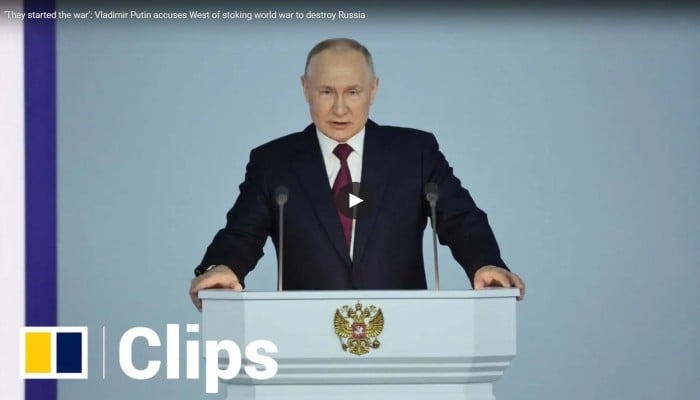 |
|
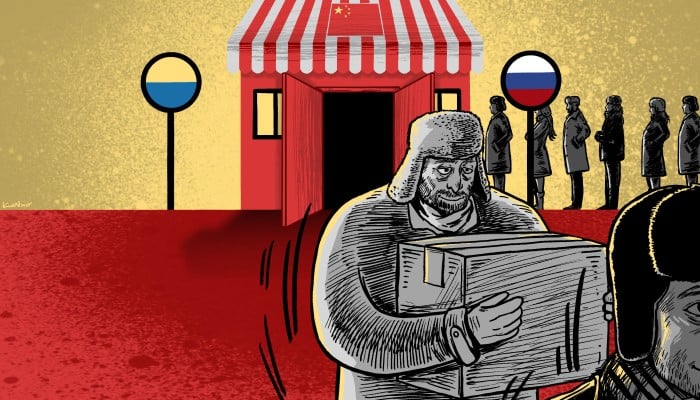 |
| Ukraine war, 1 year on: for Chinese businesses, perils and pitfalls as supply chains have changed | | • | A large business void in Russia, caused by Western brands shunning the country, makes the market as appealing as ever for Chinese sellers | | | • | But some firms are finding new challenges to making inroads with both Russian and Ukrainian buyers, including fierce competition from other countries |
| Rick Wang knows it can get pretty cold in Russia. So, the sales manager for a down-jacket manufacturer in the eastern Chinese province of Zhejiang had high hopes when he paid a one-week visit to his Russian clients after the recent Lunar New Year holiday, looking to sell some coats. But the trip earlier this month didn’t yield the results he was hoping for. He did get some face time with five current clients, and he met with two potential ones, but no one placed any new orders. Read more |
|
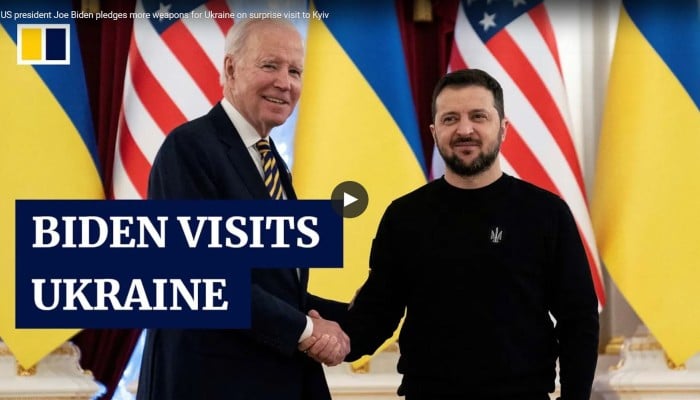 |
|
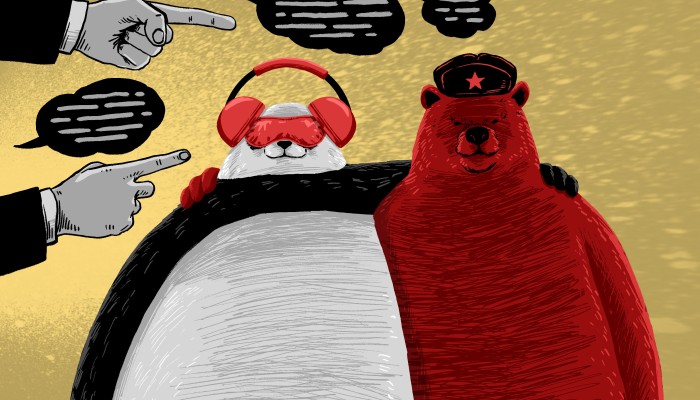 |
|
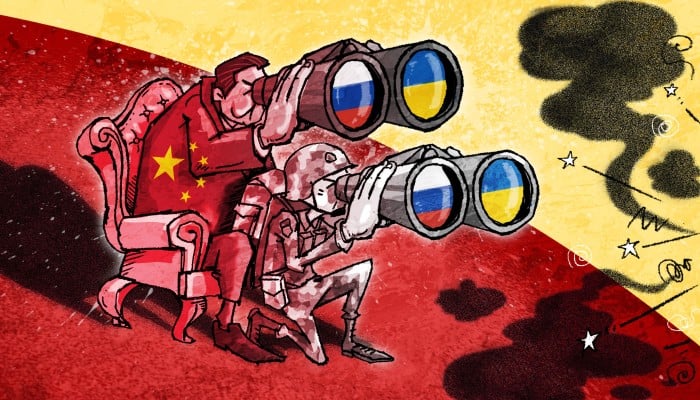 |
| Ukraine war, 1 year on: what lessons has China’s military learned? | | • | Observers say the conflict is a ‘golden opportunity’ to study modern warfare, particularly in the context of any Taiwan Strait action | | | • | The unpredictability of war poses the formidable question for Beijing of how to win swiftly and decisively, they say |
| When Russian President Vladimir Putin and his Chinese counterpart Xi Jinping met before the Olympics opening ceremony in Beijing one year ago, the shadow of war already loomed large over Ukraine. But few would have expected that the Ukraine-Russia war, launched by Putin three days after the Olympics ended, would last more than a year. Read more |
|
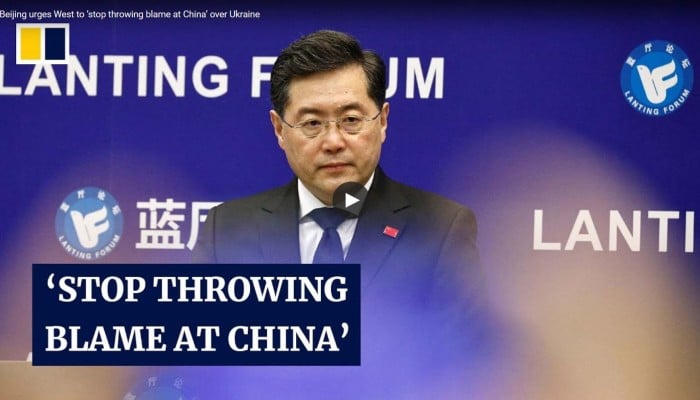 |
|
|
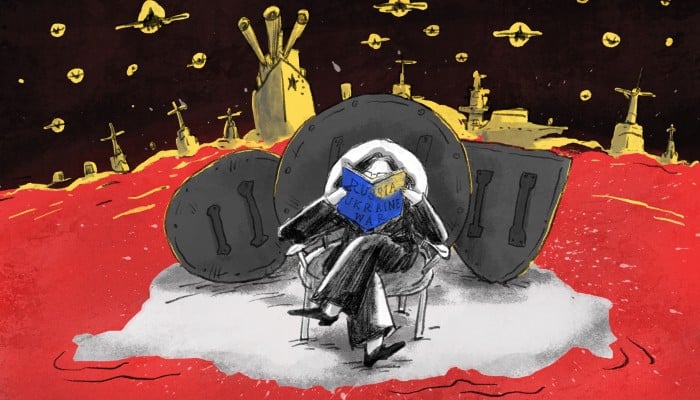 |
| Taiwan is trying to boost its defences. It’s learning from Ukraine | | • | A year into the war, observers say there are clear lessons for Taipei, including on military reform, asymmetric warfare, unity and morale | | | • | President Tsai Ing-wen has said that Russia’s invasion of Ukraine shows how a small country can resist a much bigger attacker |
| When Taiwanese President Tsai Ing-wen announced that compulsory military service would be extended from four months to a year, she pointed to Ukraine as an example for the self-ruled island to learn from. Tsai said Taiwan was “on the front line of authoritarian expansion”, and that Ukraine showed how a small country could resist a much larger attacker. Read more |
|
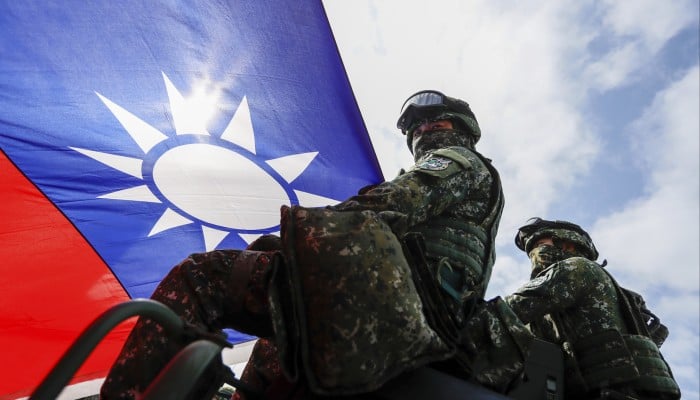 |
| Russia’s war in Ukraine spurs firms in Taiwan to ‘derisk’ amid China tensions | | • | Foreign investment approved by Taiwanese regulators hit a 15-year high of US$13.3 billion in 2022, especially in areas like chip making and offshore wind | | | • | But Russia’s invasion of Ukraine has forced multinationals to consider more closely their presence in Taiwan amid heightened tensions with mainland China |
| Growth in major industries during the coronavirus pandemic bolstered investment in Taiwan, but the perceived risk of a military attack by mainland China is making some companies rethink their long-term positions, especially in light of the Ukraine war. The global semiconductor buying spree of 2020-22 brought multinational tech companies closer to Taiwan’s chipmaking giants in areas of research and development, production equipment and raw materials. Taiwan supplies about 60 per cent of the world’s semiconductors. Read more |
|
In our next issue, we will preview China’s upcoming annual parliamentary meetings, the two sessions, which will take place in Beijing at the start of next month.
We welcome your feedback. Email me at globalimpact@scmp.com. Plus, be sure to check out our China newsfeed for the latest news and analyses.
All the best, | Daniel Kwan China News Editor |
|
|
|
|
|
Hello, thank you for reading Global Impact. Our mission is to lead the global conversation about China. This flagship newsletter is key in achieving that goal. The SCMP is your definitive source for understanding the intricacies of China‘s Communist Party leadership reshuffle. Alongside this newsletter, we provide you with in-depth insights and analysis surrounding the 20th party congress and expand on what it means to the world. Understanding China means understanding the world. With an annual or bi-annual subscription, you will also gain access to our subscriber-exclusive multimedia project, China‘s Power Players. This interactive piece provides a comprehensive outline of the current leadership and detailed profiles of rising stars within the party, and maps the connections between policymakers. |
| |
|
SCMP NEWSLETTERS THAT MAY INTEREST YOU | SCMP Today: HK Edition A daily morning briefing analysing Hong Kong and China's top stories on Business, Tech, Lifestyle and more. SCMP Focus Our curated selection of the top stories from the past fortnight, from business to lifestyle news. Lunar A weekly newsletter dedicated to celebrating women in Asia and sharing stories that matter to all of us. |
|
|




















No comments:
Post a Comment